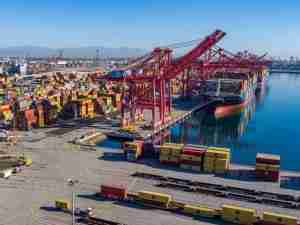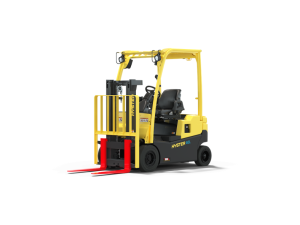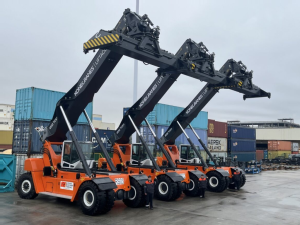Back in 1958, when the first Ottawa terminal tractor was produced at a 30,000-square-foot plant amidst the fields of Kansas, the Interstate highway program and the modern age of intermodalism were each just two years old.
Since that time, the Kansas facility, now encompassing 203,000 square feet and run by Finland-based Cargotec Corp., has produced some 50,000 terminal tractors – more than 30,000 of which are estimated to still be in service moving trailers and chassis-mounted containers at ports, intermodal terminals, distribution centers and other logistics yards.
That so many of the terminal tractors remain in use today is a testament to the durability of the units and the dealer network and customer support offered by Cargotec and its Kalmar brand, according to Randy Vance, director of customer service based at the Ottawa, Kan., facility.
Vance, who has worked at the facility since joining Ottawa Truck Corp. as an accountant 27 years ago, said he believes between 30,000 and 32,500 of the 50,000 terminal tractors ever assembled at the plant are still being used. He noted that, while terminal tractors are sold with an expectation of a 10-year service life, it is not unusual for his service department to provide parts and solutions that keep units three or more decades old in working order.
No one seems to be sure exactly what happened to that first Ottawa terminal tractor, which had an open cab and a single centered headlamp, nor even what the no-frills machine cost nor how many people worked at the Ottawa factory back in 1958, which was two years before Vance was born. The series of acquisitions that ultimately led to Ottawa Truck coming under the Kalmar brand hasn’t made tracking such things easy.
What Cargotec executives do know is that production capabilities have increased from three terminal tractors a month to a current pace of as many as nine units a day and that the trucks have evolved to offer advanced ergonomics and a full spectrum of service, safety and sustainability features, with models available that run on liquefied natural gas and compressed natural gas – and, soon to be released, gasoline – as opposed to traditional diesel. On- and off-road versions are available. Also offered are units that deploy a parallel hydraulic hybrid drive system.
Unveiled in April, the golden anniversary special edition of the Kalmar Ottawa 4x2 adds such extras as a chrome steering wheel, polished aluminium wheels, stainless steel mirrors, light-emitting-diode roof and tail lamps, and American-themed decals. At an April 19 event at the plant, top Kalmar customers and prospects were offered a special deal on the commemorative edition machines.
The introduction of the limited edition unit came a month after Cargotec delivered to Pleasanton-Calif.-based Safeway Inc. the 50,000th terminal tractor to come off the Ottawa production line.
Much of the focus in recent years has been on development of ecofriendly units that meet increasingly strict emissions reduction mandates while providing better fuel efficiency and enhanced performance.
The terminal tractor business has not been immune to the global economic downturn that has impacted virtually all industry sectors, but Cargotec officials are cautiously optimistic, having budgeted for production of 1,850 units in the fiscal year to end Sept. 30, up from 1,400 units the preceding fiscal year. Still, that’s well shy of the all-time yearly high of 3,800 units that emerged from the Ottawa plant in fiscal 2005.
A basic Kalmar Ottawa terminal tractor for off-highway trailer spotting may cost as little as $75,000, while the price can be as much as double that for on-road models powered by nondiesel energy sources and using hybrid technology, according to Dave Wood, Cargotec’s director of terminal tractor sales for North America. Durability and service are far greater factors than price in decisions to buy terminal tractors, he added.
Wood joined Cargotec at the start of 2011 after 40 years in the tr










